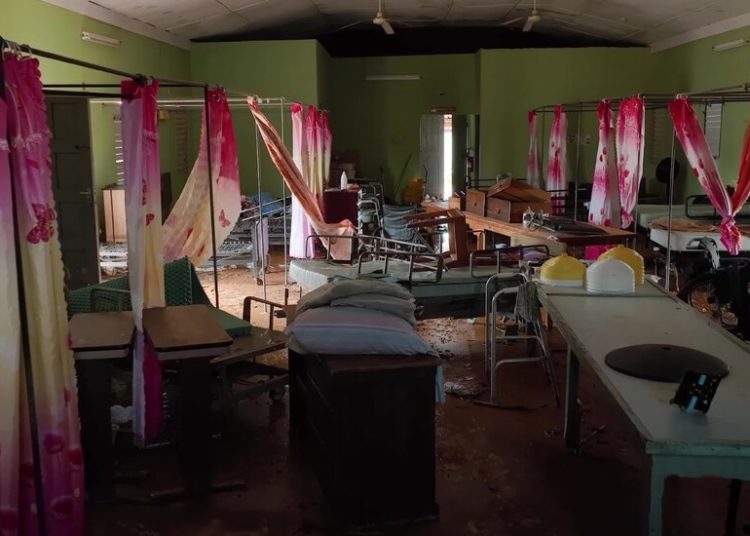Elizabeth Swan is a teacher. Her dad was a teacher. Her aunt was a teacher. “I went to school to teach during a time we were told, ‘There’s a teacher shortage. You will always have a job and be in high demand.’ And that has simply not been true,” Swan, a 27-year-old Illinois resident, told me. She is licensed to teach middle and high school history and social studies yet has been able to find only a substitute position that pays her $32,000 a year. She’s in a long-term relationship with a software engineer, and they each live with their families in the south suburbs of Chicago.
Swan’s American dream, she said, is to be “debt free, unafraid of homelessness, not fearing lack of insurance. And perhaps the dream that public education remains alive, so I can have a job.” Ideally, she would like to get married and have kids, but she feels she needs to move out on her own before that happens, which right now feels impossible. “Even the worst place is still going to be, like, $1,300 for a one-bedroom. It feels almost insane,” she said. Swan wants to be able to provide things like summer camp for her future kids and to stay solvent even if someone has a major medical issue or some other unavoidable blip.
Over the past few weeks I have read almost 200 reader responses to my prompt to members of Gen Z about what they’re thinking about their futures. I asked them about how they saw their career prospects, the future of homeownership, what they thought about family formation and what retirement could look like. I wanted to talk to young people in this moment because so much seems in flux.
I wondered: Do they embrace the earlier vision — house, steady job, kids, the white picket fence of it all — or do they want to tear it all down and go full YOLO nihilist?
While I can’t claim the responses to my call-out are a gold standard, nationally representative study, they offered a good deal of situational, gender and geographic diversity. I followed up over the phone with a dozen respondents — the ones who seemed especially thoughtful, and whose stories echoed major trends that I picked up in the responses, which are backed up by economic data.
While they might be remaking the dream around the edges — for example, thinking about buying property with friends instead of with a spouse — the Gen Z respondents I spoke to still wanted most of the old dream (get married, buy a house, have kids — not necessarily in that order); they just didn’t think they could achieve it. Almost none of them thought they would be better off than their parents, even if they described themselves as coming from generational poverty.
Of course, young people have always been anxious about their futures, and it’s often been challenging to achieve stability. Certainly, Americans have been through harder times. But there really are unique factors that make the present moment a particularly difficult, even pessimistic time for people just starting their adult lives.
‘The End of Predictable Progress’?
Housing costs are comparatively terrible. Nearly every respondent mentioned them — in tiny towns and big cities. And without homeownership, there’s no foundation for the dream. The Wall Street Journal recently published an article about how, even though more starter homes are being built, they are still unaffordable. “The median price for a starter home rose to $287,000 in 2024, up by about 44 percent from 2020,” The Journal’s Veronica Dagher noted.
To qualify for a mortgage on a starter home last year, a person needed to be earning over $100,000 a year. That’s about double what it was in 2020. I’m an elder millennial, and when the 2008 recession hit, about half my friends lost their jobs. But the cost of renting, even in New York City, plummeted. That dynamic isn’t the same right now. No wonder, as Dagher pointed out, the median age of home buyers is 38 now.
At the same time, the entry-level job market, even for college graduates, seems precarious — my newsroom colleague Kevin Roose called it an “emerging crisis,” which is “fueled, at least in part, by rapid advances in A.I. capabilities.” For young people who aren’t in college, this kind of uncertainty makes getting a degree seem like a riskier choice because they may be accruing debt they don’t think they can repay.
Christian Avalos, 25, went to college for a few years but did not complete his studies, and he’s not sure he’s going to go back. The cost of college is “sky high,” Avalos, who is from Northern California, said. “I have to wonder, you know, is this a right decision for me, and will I actually benefit from doing this in the end?”
As a result of the unpredictability of their long-term financial prospects, many of the people I spoke to are risk averse. Instead of making big bets on careers in new technology, trying out precarious creative hustles or even prioritizing youthful hedonism, they’re gravitating toward whatever seems like a port in the storm. That Covid hit smack in the middle of many of their teen years just exacerbated a desire for safety and normalcy.
Kyla Scanlon, a 27-year-old financial commentator and the author of “In This Economy? How Money and Markets Really Work,” recently wrote a newsletter called Gen Z and the End of Predictable Progress, in which she accurately summed up the economic headwinds for today’s young people.
She has spoken to more Gen Z-ers who are going all in on new tech than I have. Scanlon calls them “digital gamblers,” the types who embrace crypto speculation and influencing as a way out of traditional work. But for all members of Gen Z, she writes, “The reality we face is stark: crumbling institutions, a demographic crisis and a federal work force being dismantled.”
When I followed up with Scanlon over email, she said, “Most Gen Z-ers I speak with aren’t trying to burn down the dream. They’re just trying to figure out if there’s still a door they can walk through. They still want security, love, purpose, but they’re more skeptical of the institutions that are supposed to provide them.”
Gen Z still wants to climb the old ladder, finding a foothold in the job market while settling down and considering homeownership. But as I had these conversations, I kept thinking of the old circus bit in which clowns keep moving the ladder just as someone is trying to ascend; it’s tough to grab hold of the bottom rung when the ladder is not fixed. Above all, the young people I talked to are cleareyed about the challenges ahead.
Retirement may be a fantasy
I asked respondents about retirement because I thought it would get them thinking about the long arc of their futures. (I definitely was thinking only about the next day in my 20s.) Some expressed concern that Social Security would be gone by the time they reached old age. As Avalos put it tartly: “I don’t expect to retire. My Gen X parents are still working. I’m hoping global warming or water wars will take me out by then.”
Climate change came up a lot as a barrier to any kind of stability in the distant future. “Regardless of the economy and what’s going on in politics and all of that — how realistic does it feel to dream of a future where, you know, the climate is trying to kill you?” said Jay Girardot, 28, who lives in Fort Wayne, Ind., and works as an administrative assistant.
Girardot, who uses “they/them” pronouns, says they still believe that retirement around age 70 is a possibility but that their wife is not so confident. She has the attitude “Why bother saving for retirement? We won’t get to do that anyway,” Girardot said. And Girardot is still concerned that the market won’t provide the necessary returns for retirement for Gen Z. They think about taking matters into their own hands by becoming something of a modern homesteader. Girardot wants to “have a big garden to grow a lot of our own food and probably raise chickens and goats for milk and eggs and meat.”
What if the American dream is abroad?
While nearly everyone I spoke to still aspires to homeownership, many of them did not feel they would ever be able to afford it here in the United States. I talked to Jakob Gilleylen, 22, the week he graduated from college in Chicago. He comes from a semirural county in Michigan and said housing in Michigan and Chicago is out of reach. “It’s really like, almost, like, no matter where I go, I don’t see how people can afford to live,” he said.
Perhaps this is why so many young Americans I spoke to were considering moving elsewhere. Girardot said Donald Trump’s election in November was the reason they started thinking about leaving, because their wife is trans and they are concerned about anti-trans discrimination and a lack of access to health care. Other Gen Z-ers who were pondering lives elsewhere said it was because life seemed more economically feasible abroad.
Avalos has lots of relatives in Guadalajara, Mexico. He said that while he would worry about violence if he moved there, “at the same time, you know, a lot of my family in Mexico, like, their kids have degrees, they own their homes, and I don’t see them struggling that much to put food on their plates.”
Partnership is still a goal, but kids seem out of reach
For all the hand-wringing about how Gen Z and gender polarization has made dating more difficult, nearly all the people I spoke to were married or saw a permanent, long-term relationship as part of their life plan, regardless of their gender or sexual orientation. “Not everybody wants to have kids or anything, but I think almost everybody wants to be married at some point,” Gilleylen told me.
As a happily married lady who thinks good marriages are good, I was glad to hear that these whippersnappers hadn’t given up on the institution. This makes a lot of sense, given the generation’s overall conservatism — a supportive, loving relationship and another potential income can get you through a lot of difficult times.
But as Gilleylen expressed it, kids are a question mark. And it’s not because the young people I spoke to were anti-kids. It was because they thought they could not afford to have children. Aimee Wang, who is 19 and in college in Pittsburgh, said it almost seems that having kids is now a financial privilege. Even though her parents achieved the American dream in its purest form — they were immigrants who came to the United States with no money and opened a successful noodle restaurant — she isn’t sure that it’s possible for her to do so as well. She joked, “If you have the money, then you should get a kid. But if you really don’t have the money, you should just have a cat.”
This all seems bleak, I know. But Scanlon was able to frame this for me in a way that seems a bit hopeful, because she thinks that Gen Z’s changing view of the dream reflects the fact that they’re paying attention. “Young people aren’t zombie-walking the path,” she said. “It comes with a lot of worry and fear,” she added, but the rethinking means “that you’re awake — and that’s what building something new requires.”
End Notes
-
My most favorite hate-watch: There’s a new season of “And Just Like That,” the “Sex and the City” sequel, on Max, airing now. I wrote about the obscene wealth on display in “A.J.L.T.” in 2023, and that is still a maddening aspect of the show. The real estate this season is still absurd, and the ongoing story line with Carrie’s ex-fiancé, Aidan, is maddening. He can’t commit to anything for five years? Why are Miranda and Charlotte tolerating this arrangement? Old Miranda would have torn Carrie a new one for obsessing over a text from Aidan about a table! I have never seen a show that makes me angrier, and I want 1,000 more episodes. I hope it never ends.
Feel free to drop me a line about anything here.
Jessica Grose is an Opinion writer for The Times, covering family, religion, education, culture and the way we live now.
The post No Home, No Retirement, No Kids: How Gen Z-ers See Their Future appeared first on New York Times.




